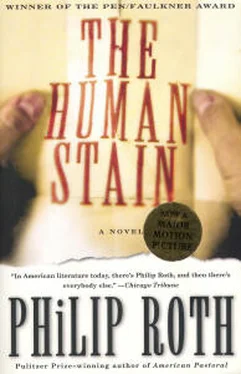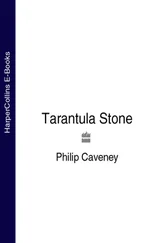She spoke in a bright, ringing voice, a smallish, hearty, round-faced woman in a long sack dress, buoyantly determined to keep to a perspective that would cause the least chagrin among the six farm-reared children, each neatly dressed in his or her best clothes, each holding a fistful of flowers to be strewn on the coffin before it was lowered into the ground.
“Which of us,” Sally asked, “will ever forget that big, warm laugh of hers? Faunia could have us in stitches as much from the infectiousness of her laugh as from some of the things she could come out with. And she was also, as you know, a deeply spiritual person. A spiritual person,” she repeated, “a spiritual seeker — the word to best describe her beliefs is pantheism. Her God was nature, and her worship of nature extended to her love for our little herd of cows, for all cows, really, for that most benevolent of creatures who is the foster mother of the human race. Faunia had an enormous respect for the institution of the family dairy farm. Along with Peg and me and the children, she helped to try to keep the family dairy farm alive in New England as a viable part of our cultural heritage. Her God was everything you see around you at our farm and everything you see around you on Battle Mountain. We chose this resting place for Faunia because it has been sacred ever since the aboriginal peoples bid farewell to their loved ones here. The wonderful stories that Faunia told our kids — about the swallows in the barn and the crows in the fields, about the red-tailed hawks that glide in the sky high above our fields — they were the same kind of stories you might have heard on this very mountaintop before the ecological balance of the Berkshires was first disturbed by the coming of...”
The coming of you-know-who. The environmentalist Rousseauism of the rest of the eulogy made it just about impossible for me to stay focused.
The second eulogist was Smoky Hollenbeck, the former Athena athletic star who was supervisor of the physical plant, Faunia's boss, and — as I knew from Coleman, who'd hired him — was for a time a bit more. It was into Smoky's Athena harem that Faunia had been conscripted practically from her first day on his custodial staff, and it was from his harem that she had been abruptly dismissed once Les Farley had somehow ferreted out what Smoky was up to with her.
Smoky didn't speak, like Sally, of Faunia's pantheistic purity as a natural being; in his capacity as representative of the college, he concentrated on her competence as a housekeeper, beginning with her influence on the undergraduates whose dormitories she cleaned.
“What changed about the students with Faunia being there,” Smoky said, “was that they had a person who, whenever they saw her, greeted them with a smile and a hello and a How are you, and Did you get over your cold, and How are classes going. She would always spend a moment talking and becoming familiar with the students before she began her work. Over time, she was no longer invisible to the student, no longer just a housekeeper, but another person whom they'd developed respect for. They were always more cognizant, as a result of knowing Faunia, of not leaving a mess behind for her to have to pick up. In contrast to that, you may have another housekeeper who never makes eye contact, really keeps a distance from the students, really doesn't care about what the students are doing or want to know what they're doing. Well, that was not Faunia — never. The condition of the student dormitories, I find, is directly related to the relationship of the students and their housekeeper. The number of broken windows that we have to fix, the number of holes in the walls that we have to repair, that are made when students kick 'em, punch 'em, take their frustration out on them ... whatever the case may be. Graffiti on walls. The full gamut. Well, if it was Faunia's building, you had none of this. You had instead a building that was conducive to good productivity, to learning and living and to feeling a part of the Athena community...”
Extremely brilliant performance by this tall, curly-haired, handsome young family man who had been Coleman's predecessor as Faunia's lover. Sensual contact with Smoky's perfect custodial worker was no more imaginable, from what he was telling us, than with Sally's storytelling pantheist. “In the mornings,” Smoky said, “she took care of North Hall and the administrative offices there. Though her routine changed slightly from day to day, there were some basic things to be done every single morning, and she did them excellently. Wastepaper baskets were emptied, the rest rooms, of which there are three in that building, were tidied up and cleaned. Damp mopping occurred wherever it was necessary. Vacuuming in high-traffic areas every day, in not-so-high-traffic areas once a week. Dusting usually on a weekly basis. The windows in the front and back door sash were cleaned by Faunia almost on a daily basis, depending on the traffic. Faunia was always very proficient, and she paid a lot of attention to details. There are certain times you can run a vacuum cleaner and there's other times you can't — and there was never once, not once, a complaint on that score about Faunia Farley. Very quickly she figured out the best time for each task to be done with the minimum inconvenience to the work force.”
Of the fourteen people, aside from the children, that I counted around the grave, the college contingent appeared to consist only of Smoky and a cluster of Faunia's coworkers, four men from maintenance who were dressed in coats and ties and who stood silently listening to the praise for her work. From what I could make out, the remaining mourners were either friends of Peg and Sally or local people who bought their milk up at the farm and who'd come to know Faunia through visiting there. Cyril Foster, our postmaster and chief of the volunteer fire department, was the only local person I recognized. Cyril knew Faunia from the little village post office where she came twice a week to clean up and where Coleman first saw her.
And there was Faunia's father, a large, elderly man whose presence had been acknowledged by Sally in her eulogy. He was seated in a wheelchair only feet from the coffin, attended by a youngish woman, a Filipino nurse or companion, who stood directly behind him and whose face remained expressionless throughout the service, though he could be seen lowering his forehead into his hands and intermittently succumbing to tears.
There was no one there whom I could identify as the person responsible for the on-line eulogy for Faunia that I'd found the evening before, posted on the Athena fac.discuss news group. The posting was headed:
From: clytemnestra@houseofatreus.com
To: fac.discuss
Subject: death of a faunia
Date: Thur 12 Nov 1998
I'd come upon it accidentally when, out of curiosity, I was checking the fac.discuss calendar to see if Dean Silk's funeral might show up under coming events. Why this scurrilous posting? Intended as a gag, as a lark? Did it signify no more (or less) than the perverse indulgence of a sadistic whim, or was it a calculated act of treachery? Could it have been posted by Delphine Roux? Another of her unascribable indictments? I didn't think so. There was nothing to be gained by her going any further with her ingenuity than the break-in story, and much to be lost if “clytemnestra@houseofatreus.com” were somehow discovered to be her brainchild. Besides, from the evidence at hand, there was nothing so crafty or contrived about a typical Delphinian intrigue — hers smacked of hasty improvisation, of hysterical pettiness, of the overexcited unthinking of the amateur that produces the kind of wacky act that seems improbable afterward even to its perpetrator: the counterattack that lacks both provocation and the refined calculation of the acidic master, however nasty its consequences may be.
Читать дальше












